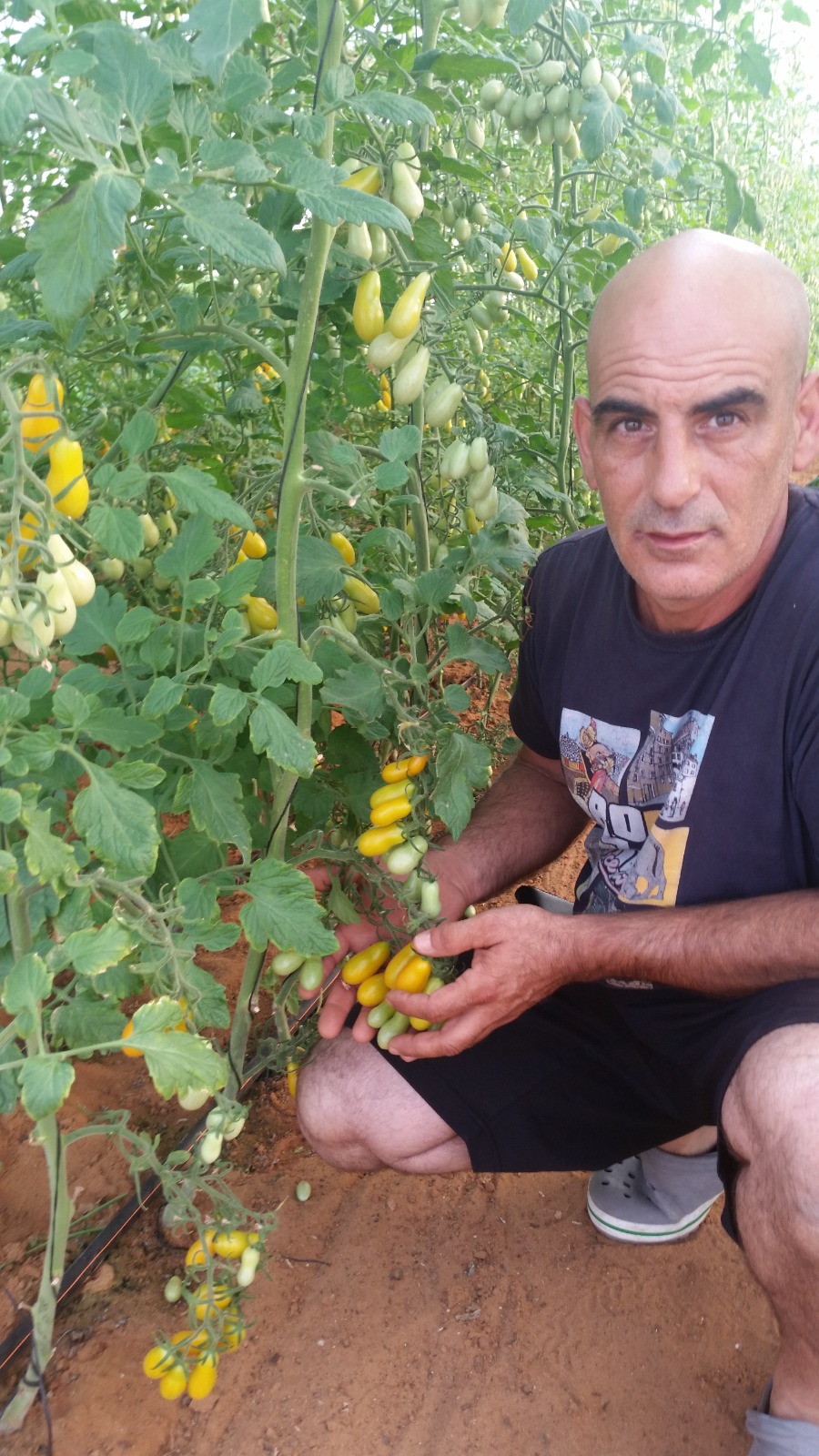Most of Israel’s fruits and vegetables are grown in southern areas, presenting significant challenges for cultivating and harvesting them since the outbreak of the Israel-Hamas war on Oct. 7. These have already led to some shortages and price rises, and more are expected.
“According to the assessment of the Ministry of Agriculture, the inventory of fresh local produce in tomatoes, cucumbers, cabbages, onions and strawberries will decrease by small margins in the winter months, and the ministry assesses that it [the inventory] will be completed by means of importers who will import the shortfall from abroad,” the ministry told The Media Line in a statement.
The Media Line spoke with Israeli farmers about the challenges they are facing, ranging from the difficulties of cultivating specific crops to the general labor shortage since the outbreak of the war, caused largely by the departure of the mostly Thai agricultural workers from Israel and the prohibition on Palestinian laborers entering Israel.

Guy Tal with cherry tomatoes on his farm. (Courtesy)
Guy Tal, 54, runs the MI Tal farm in Moshav Bitzaron, near Ashdod, where he grows 17 varieties of exotic fruits on about 250 dunams (62 acres) of land.
Tal told The Media Line that he needs adequate assistance throughout the cultivation process, from planting to harvesting.
“The picking of the fruit is the final show for us, it is the last step,” he said. “Before picking the fruit, there is much more to do. Before that, we must dig up the soil, plant the seeds, water the seeds, and then when they grow, we pick them. We cannot do all of this without the help of our workers.”
A significant number of farmers are currently relying on volunteers for their labor force.
As a result of the escape or departure of the workers, we were forced to abandon part of our cucumber greenhouses
This holiday season, give to:
Truth and understanding
The Media Line's intrepid correspondents are in Israel, Gaza, Lebanon, Syria and Pakistan providing first-person reporting.
They all said they cover it.
We see it.
We report with just one agenda: the truth.
Please support TML's boots on the ground.Donate [1]

Oren Sabah, a third-generation farmer in Moshav Ahituv, in central Israel near Hadera, cultivates a range of vegetables and fruits, but his main crop is 150 dunams (about 37 acres) of cucumbers. Sabah told The Media Line that he was feeling overwhelmed by the departure of half his Thai workers, with their absence significantly affecting his ability to manage and harvest his produce effectively.
“As a result of the escape or departure of the workers, we were forced to abandon part of our cucumber greenhouses,” he said. “The old, mature areas we abandoned to keep the young areas, and we suffered a lot of loss.”
Sabah said that a rise in prices is inevitable due to the impending shortages of the vegetables.
“Because I don’t have working hands to help anymore, the price goes up. The price goes up not because I want it to, it’s because of the shortage in the market,” he said.
The Agriculture Ministry told The Media Line that as well as challenges in cultivation and harvesting, transporting produce across the country was also a challenge.
“The difficulty in transporting the agricultural produce, which the farmers harvest with great effort, was defined as one of the most significant problems faced by the agricultural sector during the fighting days throughout the country,” the ministry said. “There has been a severe shortage of trucks and drivers, many of whom have been drafted into the reserves. This created a real difficulty for farmers to transfer their produce to the market and final sales destinations.”

Uri Alon speaks with a group of visitors on his farm. (Courtesy)
Agronomist Uri Alon owns The Salad Trail, a farm near the Egypt-Gaza border that draws visitors from around the globe to showcase advanced agricultural technology. He grows 50 different crops, including 20 types of herbs, but his main crops are cherry tomatoes and strawberries.
Alon also said that the labor shortage was posing significant challenges, and with his farm being located so near the Gaza border, volunteers and paid workers alike were hesitant to come forward, forcing him and his wife to do much of the work themselves.
“For example, tomatoes, if you don’t spray just one week, all the crop is gone,” he said. “Cherry tomatoes or [regular] tomatoes, if you leave the farm for one week, all the crop is gone, because a lot of diseases and insects come and attack the plant. That’s what happened with us the first two weeks, because it needs a lot of handwork, also to spray and to treat the plant.”
Tal said the best solution to support Israeli farmers would be to bring in foreign workers.
“The solution is simple. If the State of Israel decides to give us the option to bring foreign workers from outside the country, then we can bring workers and plant and work normally,” he said.
The Agriculture Ministry said that it was working on exactly that idea.
“We are working to bring working hands to the field of agriculture, which includes the approval of the entry of 5,000 foreign workers in agriculture as part of a new route, who will be recruited and invited to Israel by a private bureau that has a permit to broker foreign workers to the agriculture sector,” the ministry said.
Lana Ikelan is a recent graduate of the Hebrew University of Jerusalem and an intern in The Media Line’s Press and Policy Student Program.